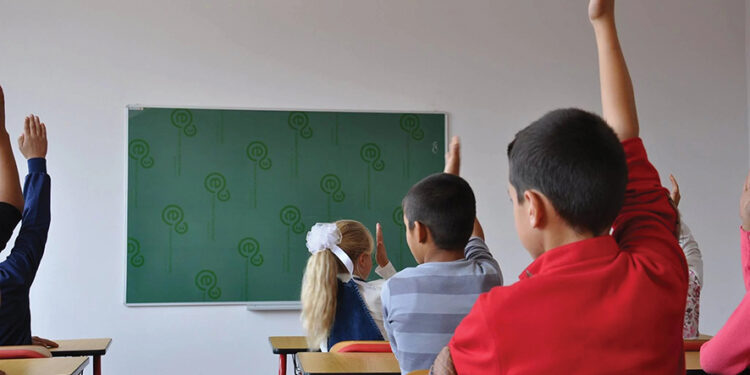September is coming fast, bringing the new school year in, but it is not like it used to be in our good old days. Things have changed since then: the First of September, the beloved first day at school after the summer off-school time, has moved to September 15, and schools are now called public in compliance with the Western academic model known as the Bologna Process—a voluntary intergovernmental educational cooperation among EU member countries.
In the United States, for instance, the school system seems to be somewhat different, if not a little more complicated, than in Sakartvelo. In America, the school system is concentrated on the so-called K–12 structure, meaning from kindergarten to 12th grade, including elementary school from grades one to four, middle school from the fifth to the eighth, and high school from the ninth to the twelfth grade. Students go to either free public schools or quite costly private ones. Homeschooling is an option too.
The curriculum includes subjects like math, English, and science, with an emphasis on critical thinking, and often includes a strong focus on extracurriculars like sports. To compare, in Georgia, general education spans over 12 years and comprises three steps: primary – six years, basic and middle – three years each. Primary and basic education are compulsory in the country. Schools in Georgia, like in the West, can be both public and private. General education schools operate based on national educational plans, projects, and curricula.
The state budget allocates only 7.5 percent for educational purposes, which doesn’t seem to be much, but that’s just the way it is. Meanwhile, the predominant idea in the country is that if anything can help Georgia to someday find itself among the developed nations of the world, it is the relevant education of its younger generation—the kind of education that is compatible with the contemporary socio-economic standards and demands of our time.
How to achieve that? The answer to this key question is where the nation is stuck—there is not even one person in this country who could come up with a panacea or at least some practicable remedy that would solve the problem. The general emphasis is being placed on teaching the English language and computer skills, which sounds like a perfunctory attitude toward the purposes of contemporary education.
At the heart of the issue lies an outdated model. Many classrooms still operate on a factory-style approach, emphasizing standardized testing, rote memorization, and uniform learning paths. This system was designed for the industrial age, where conformity and the ability to follow instructions were paramount.
Today, however, the economy and society demand a different set of skills: creativity, critical thinking, collaboration, and adaptability. Our rigid curricula, packed with siloed subjects, leave little room for students to develop these essential competencies. We teach them what to think, but rarely how to think.
Looking at the world as it is evolving today, one gets the feeling that unless our attitude towards enlightenment is radically changed, the effect of education will never be relevant or practically applicable. Everything is changing around us, and changing at an extremely high speed, but our understanding of education and its consequences is not moving anywhere.
It takes exactly as much time as it used to take a hundred years ago; we are teaching the subjects we used to teach long ago—except for a couple of new ones—the methodology of teaching is overwhelmingly the same, teacher-student-parent relations are not going anywhere, and the knowledge evaluation criteria remain as old as the world itself.
There are attempts made to guess what professions might be more popular in the future, and those are helpful predictions, but not nearly enough to answer the most bothersome question of almost every parent in Sakartvelo: What is in store for my child in the future?
The main concern of the parents is how to prepare their children for grown-up life in the epoch of the immense technological boom and digital catastrophe, followed by the overly, wildly speedy development of Artificial Intelligence. There is a ubiquitous apprehension about the fact that modern education is not compatible with the contemporary demands of real life.
Our schools and universities are tasked with preparing the next generation for the future. Yet, a critical look at our educational systems reveals a troubling disconnect. The methods, curricula, and goals that have defined education for the past century are struggling to keep pace with the swift currents of the 21st century. The world has changed, but education, for the most part, has not.
This growing gap means we are preparing students for a world that no longer exists. Contemporary demands require a fundamentally different approach. Consider the rise of artificial intelligence. AI is not just a tool; it is a transformative force that is reshaping every industry.
An effective education must equip students to work alongside AI, to understand its ethical implications, and to leverage its power for innovation. This requires a curriculum that integrates digital literacy, data analysis, and ethical reasoning across all subjects—not just in specialized computer science classes.
The task of reforming education is monumental, but the cost of inaction is far greater. Continuing with our current model is a disservice to our students and a risk to our collective future. We must have the courage to dismantle outdated structures and build an educational system that is as dynamic, adaptable, and forward-thinking as the world it is meant to serve.
Op-Ed by Nugzar B. Ruhadze














